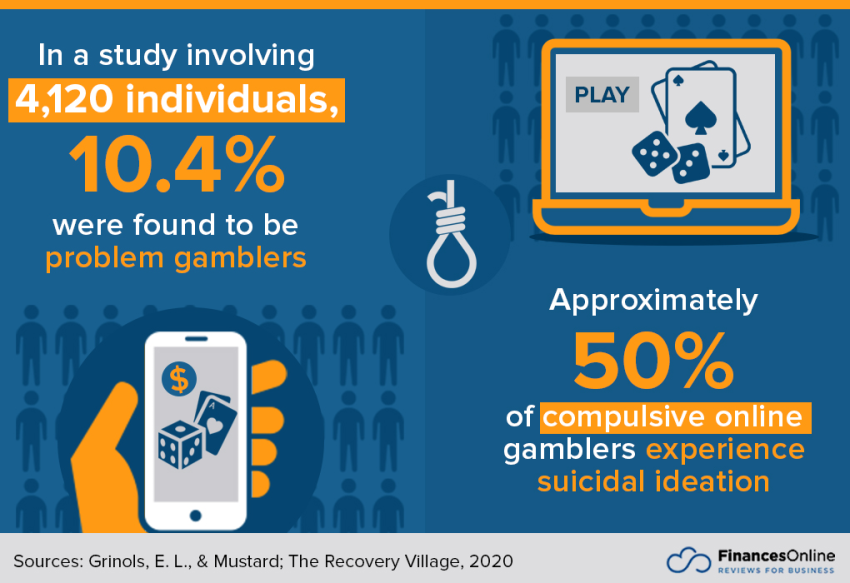Gambling facts are essential for anyone looking to engage in this widely popular entertainment. Beyond the fun and thrill, understanding the risks associated with gambling, such as addiction and financial losses, is crucial. As we delve into the statistics surrounding gambling, it becomes clear that responsible gambling practices are not only advisable but necessary. With the rise of online gambling and evolving gambling regulations, knowing where to draw the line can make all the difference. Educating yourself on these facts will empower you to make informed and safe choices before placing your bets.
To truly grasp the complexities of betting and wagering, it’s important to explore the various dimensions of this activity, commonly referred to as gaming or gambling entertainment. Understanding the environment of chance, where individuals risk something valuable for the possibility of gain, offers insight into both its allure and peril. With the rapid growth of digital gaming platforms, players face both unprecedented access and the increased likelihood of gambling addiction. Recognizing the latest gambling statistics and being aware of regulations in place can guide participants towards more responsible behaviors. Ultimately, engaging with these alternative terms helps clarify the multifaceted nature of gambling in our society.
Essential Gambling Facts to Know
Gambling remains a prominent activity around the globe, with millions participating every year. However, essential gambling facts often go unnoticed. For instance, many people are unaware that the majority of gamblers do not win in the long term; instead, they contribute to the significant revenues the industry generates. Reports indicate that not only did the gambling industry surpass **$71 billion** in revenue in 2024, but players collectively lost over **$100 billion**. These statistics highlight the economic impact of gambling but also reflect the importance of understanding the inherent risks that accompany such activities.
Moreover, gambling addiction is a growing concern that affects individuals and communities alike. Understanding the signs and statistics surrounding this addiction is crucial. Organizations dedicated to promoting responsible gambling emphasize that awareness can significantly reduce the risk of falling into addiction. Empirical studies suggest that nearly 1-2% of adults are affected by severe gambling problems, underscoring the necessity of education and resources aimed at promoting responsible gambling practices.
The Importance of Responsible Gambling and Regulations
As the gambling landscape undergoes transformation through online platforms and advanced technology, the importance of responsible gambling practices cannot be overstated. Individuals engaging in gambling must be aware of their habits and limitations. Setting financial boundaries, educating oneself about gambling odds, and recognizing warning signs of addiction are all critical components of responsible gambling. Regulatory bodies are increasingly implementing strict guidelines aimed at protecting vulnerable populations, particularly minors. Changes such as raising the legal gambling age reflect a commitment to ensuring safer gambling environments.
Furthermore, regulations surrounding the gambling industry are evolving to respond to the changing dynamics of online gambling. With the growth of digital platforms, there is a pressing need for clear and effective regulations to mitigate the risks associated with excessive gambling. For instance, more states are adopting strict regulations regarding advertising and accessibility to protect potential gamblers. Such measures are not only beneficial for individuals but are vital for creating a well-regulated gambling environment, striking a balance between enjoyment and safety.
Frequently Asked Questions
What are some key statistics about gambling and its impact on society?
Gambling remains a significant aspect of entertainment, generating over $71 billion in revenue in 2024. However, the darker side reveals players losing upwards of $100 billion annually. These gambling statistics underscore the importance of responsible gambling practices to mitigate financial loss and prevent gambling addiction.
How can technology enhance responsible gambling practices?
Technology plays a crucial role in promoting responsible gambling by providing users with tools for self-assessment and self-exclusion. Many online gambling platforms now offer resources that help monitor betting habits, educating users on the risks of gambling and aiding in the prevention of gambling addiction.
| Key Point | Explanation |
|---|---|
| Definition of Gambling | Wagering something of value on uncertain outcomes, typically for monetary gain. |
| Gambling Statistics | The gambling industry generated $71 billion in revenue in 2024, yet players lost over $100 billion collectively. |
| Addiction Risks | Gambling can lead to addiction, significantly impacting individuals and communities, necessitating responsible practices. |
| Online Gambling Growth | Increased accessibility through online platforms raises the risk of excessive gambling behavior. |
| Regulatory Changes | Proposals to raise the legal gambling age aim to protect the youth from gambling-related issues. |
| Responsible Gambling Practices | Set limits, educate and recognize addiction signs to promote safe gambling. |
| Technological Impact | Technology enhances user experience and provides tools for monitoring gambling habits to promote responsibility. |
| Social Impacts | Gambling addiction can lead to financial and mental health issues, necessitating community resources for support. |
| Case Studies | Examining gambling habits across demographics aids in addressing addiction and formulating effective policies. |
Summary
Gambling facts reveal a fascinating but complex landscape where enjoyment may also lead to significant risks. As individuals navigate through the thrilling yet precarious world of betting, understanding the statistics, recognizing the signs of addiction, and practicing responsible gambling have never been more critical. With $71 billion generated in revenues against losses exceeding $100 billion annually, it is evident that while gambling can be enjoyable, it carries inherent financial and personal dangers. The narratives surrounding gambling underscore the importance of making informed choices, relying on technological aids for responsible behavior, and utilizing community support systems to combat addiction. Remember, prioritize your well-being above all and gamble responsibly.
